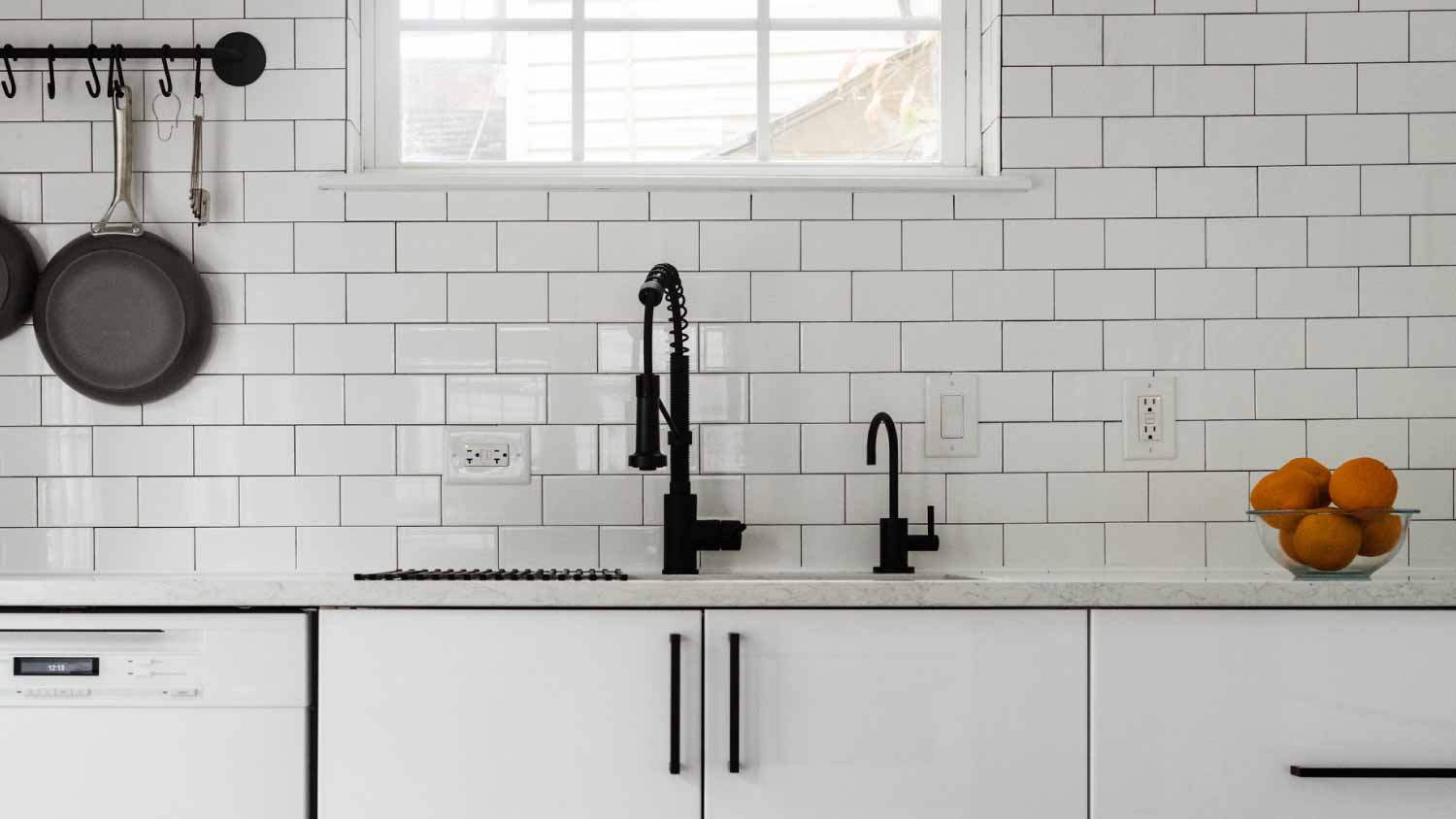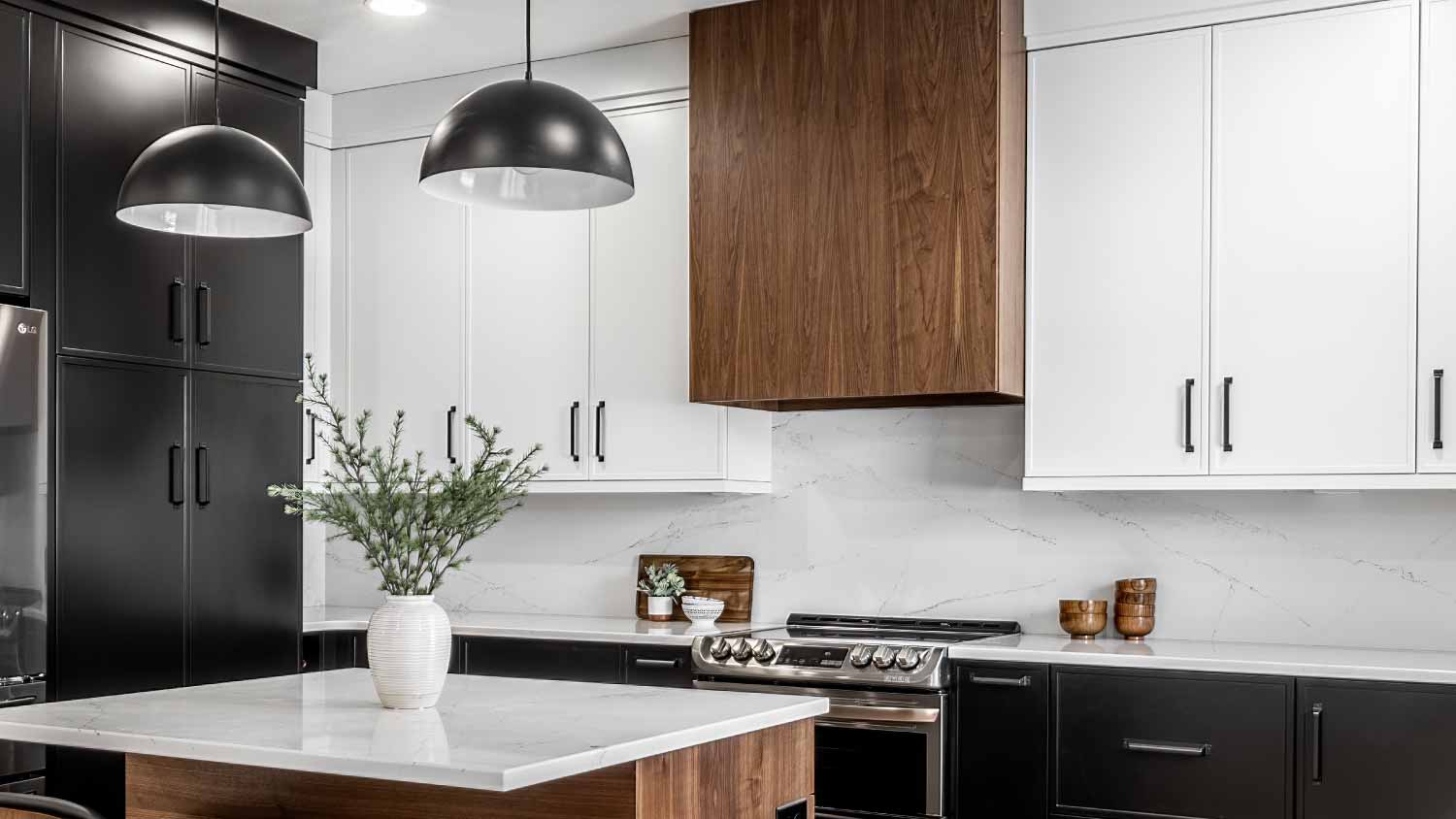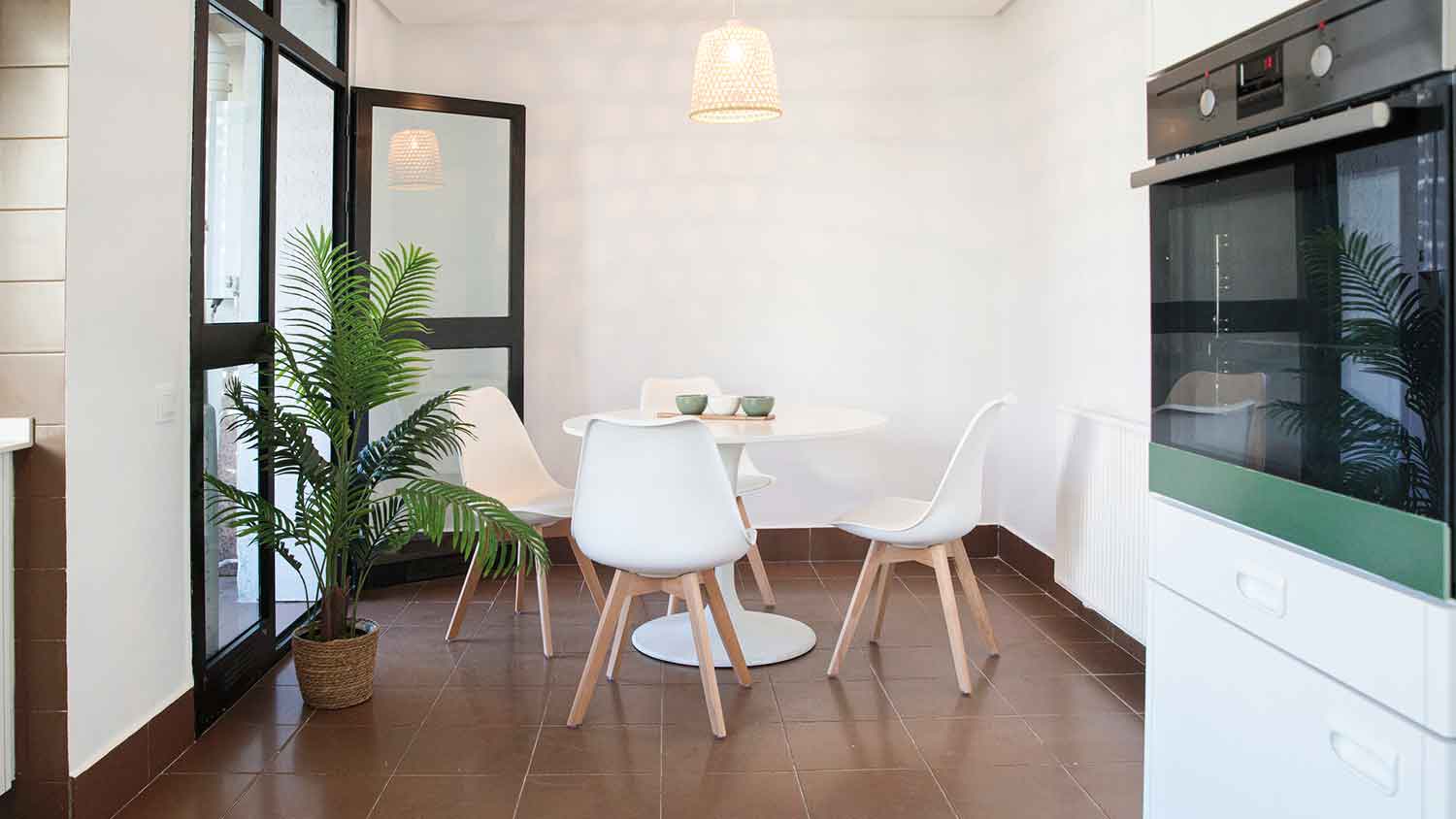.jpg?impolicy=leadImage)
Sealing your grout goes a long way toward extending its life span. This guide breaks down the cost factors for sealing grout, including size, materials, and labor.
Choosing one over the other may not be as easy as you think


Quartz backsplashes cost $80 to $100 per square foot.
Tile backsplashes cost $25 to $50 per square foot.
A quartz backsplash is more durable than a tile installation.
A tile backsplash can be a work of art with the right installer.
Updating your kitchen may involve adding a beautiful new backsplash. If that’s the case, you could be torn between a quartz vs. tile backsplash. From functionality to design, the options are seemingly endless. The countertop backsplash is an often overlooked yet crucial design element that also serves an important function.
Choosing a design is more than just picking an affordable kitchen backsplash versus an extravagant one. The decision is more about performance, maintenance, cost, and style. An excellent place to start your search for the perfect kitchen or bathroom finishing touch is at the quartz backsplash versus tile cost debate.
The key differences between a quartz backsplash and a tile one come down to appearance, maintenance, and money. While a quartz backsplash costs more for materials, it can increase the home's selling value. However, your design choices are more limited than with tile. A tile backsplash can be almost anything you want it to be at nearly any price. However, there are maintenance details that aren't an issue with quartz.
When taking on this project, expect questions only a pro can answer. With our network of local pros, you'll get the job done and your questions answered—without the hassle and stress of doing it yourself.
A quartz backsplash consists of the same material as quartz countertops. Quartz materials for countertops and backsplashes are solid slabs made from various crushed stones, including quartz, marble, granite, and others. The stones combine with resins and hardeners to simulate a natural stone look. The slabs are then cut, shaped, and installed by a countertop or backsplash installation professional near you to fit your kitchen or bathroom areas with as few seams as possible.
| Pros | Cons |
|---|---|
| Seamless, rich appearance | Requires professional installation |
| Highly durable material | Costly materials |
| Virtually maintenance free | Appearance limited to manufacturer styles |
Best for:
Kitchens and baths in need a distinctive focal point
Designers seeking a high-end kitchen and bath appearance
Those looking for a durable and maintenance-free backsplash
Quartz backsplashes offer a rich, unique appearance depending on the chosen style and colors. This backsplash material is highly durable and can last as long as the home without much maintenance. Quartz backsplashes make excellent focal points and a strong detail statement in any kitchen or bath, especially if you want a high-end look and feel.
The two most significant drawbacks of quartz backsplashes are the high cost of materials and the potentially limited style options. While quartz comes in many colors and styles, customers are limited to the types, colors, and patterns created by the manufacturer. Quartz's need for professional installation can be disappointing to an avid DIYer.

A tile backsplash is just as it sounds. Tile backsplashes consist of ceramic, porcelain, glass, or other types of tile and add style options unlike any other material. Because of the vast tile size, shape, color, style, and size options, a tile backsplash in a kitchen or bath can be anything you wish it to be. A tile backsplash installation is possible through highly skilled local tile contractors or as a DIY project.
| Pros | Cons |
|---|---|
| Millions of design and color options | Requires maintenance |
| DIY and wallet-friendly | Long installation process |
| Repairable | Adds less value than quartz |
Best for:
Kitchens and baths in need of a one-of-a-kind look
DIYers looking for a cost-effective yet stylish backsplash solution
Homeowners who may want to change the look someday
Due to the nearly unlimited styles, colors, price ranges, and types of tile choices available, a tile backsplash's most significant pro is that its design is limited only by imagination and budget. DIYers can quickly learn to create a custom look and feel for their kitchen or bath for a fraction of the cost of quartz.
Or homeowners can spend more money on a one-of-a-kind custom backsplash design installation that rivals even the finest materials available. Durable but not immune to all damages, tile is repairable simply by replacing one piece at a time if necessary.
The cons of tile can be tricky to spot until during and after installation. Homeowners can create almost any look they want at nearly any price range. However, installation can take several days. Once complete, the grout between the tiles requires ongoing maintenance to keep it sealed, clean, and looking good. And, while high-end tile backsplash installations can get expensive, they typically offer less of a resale value increase to the home than quartz.

There's no doubt that quartz is the richer and more luxurious option for appearance straight from the manufacturer. However, the appearance category is a tie because of tile's ability to transform into a truly unique and beautiful display when a DIY artisan or professional installer with a large enough budget gets to work on a tile backsplash. For a more natural look, quartz is an excellent choice. For a highly artistic look and feel, tile can make it happen.
Quartz countertop and backsplash manufacturers offer many colors, styles, and patterns. However, even that vast selection pales compared to the unlimited design options tile can deliver.
A quartz backsplash's nearly seamless and dense single-slab design means little can go wrong with durability. The material is tough, impermeable, stain resistant, rarely needs maintenance or deep cleaning, and is spot-repairable by a skilled pro.
Most tile materials are impermeable. However, tile installations are only water resistant and not water-proof. Water and stains can discolor, damage, and get behind the grout between tiles. Periodic sealing is necessary to maintain the grout's integrity to avoid durability issues with the installation.
There's no getting around the fact that quartz backsplash materials are costly. An installed backsplash costs an average of $80 to $100 per square foot. However, tile can be expensive, too, depending on type, style, and quality. High-end installations can easily cost well over $50 per square foot.
Tile can also be cost-effective, though, at an average of around $25 per square foot, and still look excellent, depending on the skill and creativity of the installer. Homeowners will encounter a similar issue when negotiating the value and cost of quartz countertops versus other types.
Once you know how to measure for a backsplash, installing a tile masterpiece is a fun and straightforward DIY project. DIY quartz backsplash installation is possible but often requires the skills and tools of a professional to do the work properly. Maintaining the warranty on quartz backsplashes sometimes also requires professional installation.
Tile installation is a two-step process that can take several days, whether doing it yourself or hiring a pro. A nearby quartz installation professional can install a quartz backsplash and matching countertops within several hours to a single day.
With just a few type exceptions, most tiles don't need upkeep. However, even the best kitchen backsplash grout requires periodic sealing maintenance. Quartz, on the other hand, will seldom require any maintenance beyond simply wiping it off between uses.
From average costs to expert advice, get all the answers you need to get your job done.
.jpg?impolicy=leadImage)
Sealing your grout goes a long way toward extending its life span. This guide breaks down the cost factors for sealing grout, including size, materials, and labor.

Discover the cost to regrout shower, including average prices, key cost factors, and tips to help you budget for a fresh, watertight shower.

Tile varies dramatically in price, but there’s something for every budget. This guide will help you plan for tile installation costs, no matter the project.

Planning a tile project? Use this calculator to determine how much tile you need based on your project’s square footage and tile dimensions.

Need to install a backsplash or repair that shower surround? Use this guide on how to cut tile using affordable tools that are easy to use.

Discover the key differences between acrylic versus silicone caulk to choose the right sealant for your next DIY project.